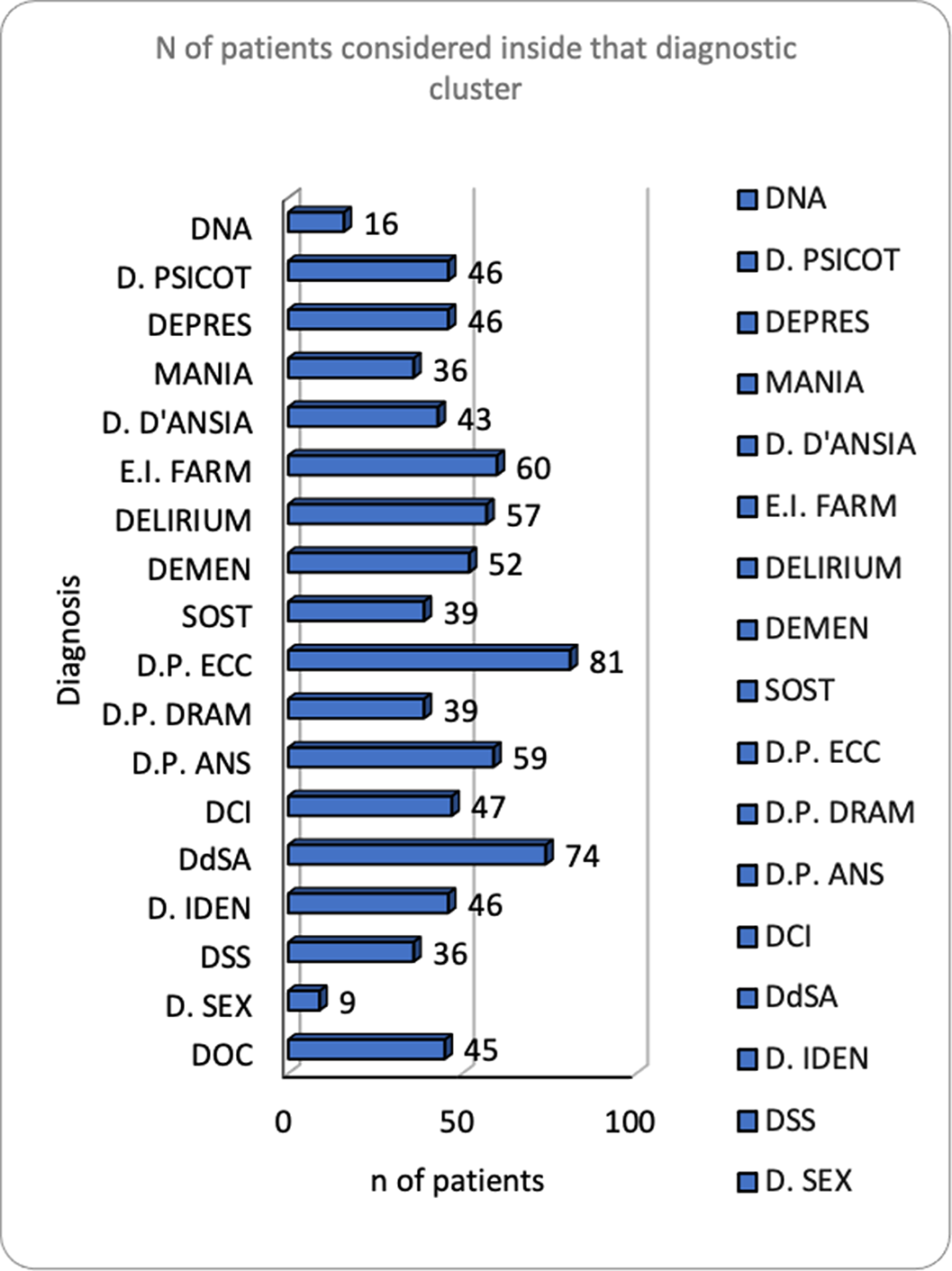No CrossRef data available.
Article contents
Specific cognitive dysfunctioning and vulnerability to specific psychopathology: A descriptive study on intellectual developmental disorder (intellectual disability)
Published online by Cambridge University Press: 19 July 2023
Abstract
Intellectual Developmental Disorder (IDD) is diagnosed with cognitive and adaptive behaviour evaluations. There is increasing evidence of a high prevalence of psychiatric disorders comorbid with IDD. The relationship between specific cognitive dysfunctions and psychiatric vulnerability may provide the basis for a paradigm shift from “intellectually below average IQ” to “neuropsychological characterization”.
1) reassessing an IDD sample in cognitive profile and psychiatric comorbidities 2) investigating the correlations between specific cognitive dysfunctions and specific psychiatric diagnoses in IDD.
120 individuals with IDD from 3 Italian facilities were consecutively evaluated, one group with mild IDD, using WAIS-IV or Leiter-3, TMT, Stroop and TOL tests, after which a professional caregiver did individual interviews (Vineland Adaptive Behavior Scale-II, SPAIDD-G, and STA-DI) to evaluate the patient adaptive behaviour, psychiatric comorbidities and presence of ASD. The second group (more severe IDD), was evaluated only with professional caregiver assessment tools.
90 males and 30 females, mean age 57 years, institutionalized for a mean period of 36.44 years. 52% had no education, 19% a middle school diploma. IDD diagnoses: borderline 3%, mild 16%, moderate 11%, moderate-severe 4%, severe 59%, profound 0%.11% comorbid ASD diagnosis, 29% with ASD after diagnostic re-assessment (STA-DI). 89% physical comorbidities, 58% psychiatric comorbidities, 56% psychoses (Fig. 1). Psychiatric comorbidities re-assessment (SPAIDD-G) identified a significant number of disorders (Fig. 2), despite the medical records showed a low prevalence of psychiatric diagnoses. The consistent quantity of psychotropic drugs prescribed in the sample, possibly reflects the real prevalence of psychopathology. Pearson correlations (p<0.05). WAIS-IV and SPAIDD-G (N=29): Verbal Comprehension Index correlates with anxiety disorder and impulse control disorder; Perceptual Reasoning Index correlates with nutrition/feeding disorder; Processing Speed Index correlates with nutrition/feeding disorder and sexual disorder; IQ correlates with ASD, nutrition/feeding, anxiety, sexual disorders. Leiter-3 and SPAIDD-G (N=14): Form Completion and non-verbal IQ correlate with OCD negatively.
Image:

Image 2:

In conclusion, the SPAIDD-G evaluations revealed a greater prevalence of psychopathology than reported in the medical records. Using psychopathological screening tools can improve the diagnostic process in residential facilities for IDD cases. Pearson’s analyses revealed the need to further investigate the correlation between cognitive dysfunctions and psychopathological vulnerability, studying intelligence as a multi-component model and identifying specific behavioural and cognitive phenotypes in IDD cases.
None Declared
- Type
- Abstract
- Information
- European Psychiatry , Volume 66 , Special Issue S1: Abstracts of the 31st European Congress of Psychiatry , March 2023 , pp. S148 - S149
- Creative Commons
- This is an Open Access article, distributed under the terms of the Creative Commons Attribution licence (https://creativecommons.org/licenses/by/4.0/), which permits unrestricted re-use, distribution, and reproduction in any medium, provided the original work is properly cited.
- Copyright
- © The Author(s), 2023. Published by Cambridge University Press on behalf of the European Psychiatric Association





Comments
No Comments have been published for this article.